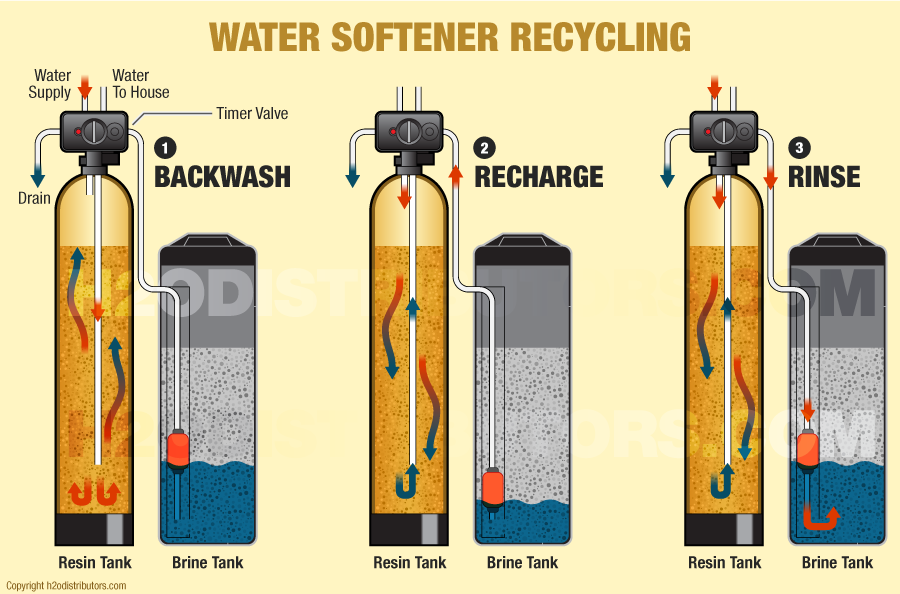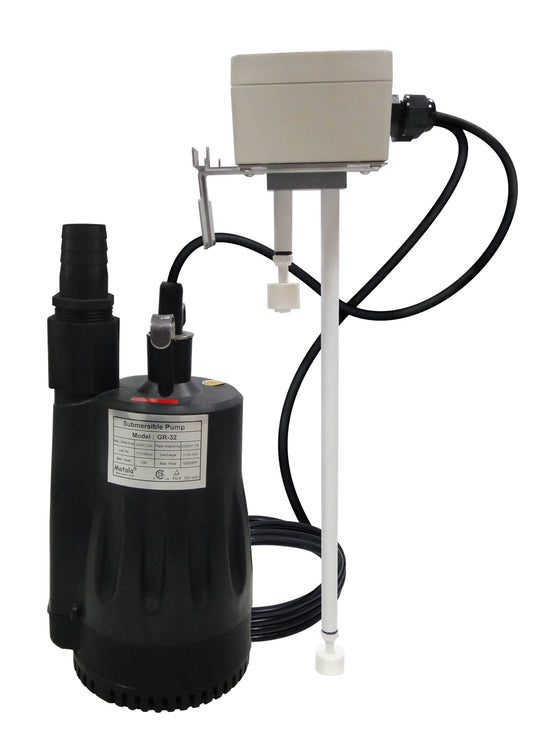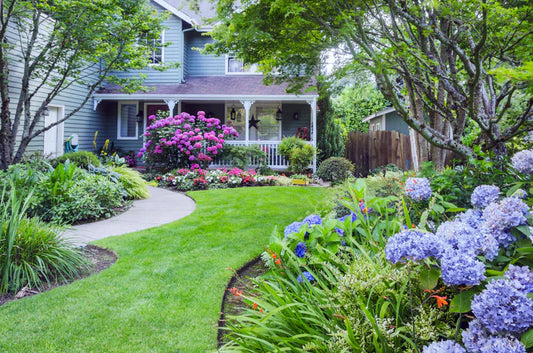
Can I Use Greywater If I Have a Water Softener?
Sam WilhoitIf your home uses a traditional sodium-based water softener, the greywater may be too salty for safe irrigation. High salt levels can damage soil structure and harm plant roots. However, alternatives like potassium-based softeners or bypass setups (e.g., keeping your washing machine off the softener loop) can make greywater reuse possible. Each setup requires careful planning to ensure plant and soil health.
How Water Softeners Affect Greywater Safety
Most residential water softeners work by swapping calcium and magnesium ions (which cause hardness) with sodium ions. This process creates water that's gentle on pipes and appliances—but harsh on gardens.
Why Salt Is a Problem
When sodium-rich water is used for irrigation, it:
- Disrupts soil permeability, reducing water and nutrient flow
- Accumulates in the root zone, causing plant stress or toxicity
- Harms salt-sensitive plants like fruit trees, vegetables, and many ornamentals
"This kind of water is not suitable to be reused outside as it is high in salt and can harm plants and soil." — Water Wise Group best practices
Workarounds: Making Greywater Usable with a Softener
1. Switch to a Potassium-Based Softener
Potassium chloride softeners work similarly to sodium models, but the potassium is less harmful to plants — and even acts as a mild fertilizer in small doses.
Pros:
- Better for plant health
- Same functionality as sodium softeners
Cons:
- Potassium chloride is more expensive
- May not eliminate all salt-related issues in sensitive soils
2. Bypass Certain Fixtures
You can often reroute your washing machine or shower to bypass the water softener. That way, greywater from those sources is not exposed to added salts and is safer for reuse.
This setup is common in households using systems like the Aqua2use GWDD, which captures laundry and shower water for garden irrigation.
“The unit is attached to the discharge from the laundry room. I have modified the outlet to connect to a garden hose and water my yard in Arizona…” – Richard A., Aqua2use System Owner
3. Explore Magnetic or Template-Assisted Softeners
Some emerging technologies claim to soften water without using salt — such as magnetic descalers or template-assisted crystallization (TAC). These systems don’t add sodium or potassium to your water.
⚠️ However, their effectiveness varies and they may not be recognized as true softeners. We don’t have enough field-tested data on these solutions and would love to hear from users who do.
FAQ: Greywater & Water Softeners
Can I use softened water for my garden?
Only if you use a potassium-based softener or bypass the softener entirely for your greywater sources.
What happens if I use sodium-softened greywater on plants?
Over time, salt buildup can degrade soil and harm or kill sensitive plants.
Is bypassing my washing machine hard?
No. Many plumbing systems allow for easy rerouting, especially during remodels or greywater system installations.
Are there softeners that don’t use salt?
Yes — such as magnetic, catalytic, and carbon-based systems. Just be cautious and research their actual performance.

Final Word: Know Your Source
Greywater can be a game-changer for sustainable gardening — if the water is safe. If your home uses a water softener, take the extra step to understand what type it is and how it affects your irrigation plans.
To explore greywater-compatible systems like Aqua2use, or learn how others in dry climates manage their setup successfully, visit Water Wise Group and check out real homeowner stories







